#AutomotiveIndustry
Average Age of U.S. Light Vehicles Older Than Ever
S&P Global Mobility has reported that the average U.S. automobile is now 12.2 years old, which it said represented a 2 percent increase since 2021. While relatively modest, the general trend for the last five years has been for vehicles to get older as drivers attempted to milk more life from beleaguered hardware.
Much of this has been attributed to North America’s broadening wealth gap and general improvements in vehicle longevity. If you look back at Department of Transportation data from the 1990s, the average age of a car was under nine years. By 2007, the typical car would see its 10th birthday before scrappage and the number has continued to climb from there. Much of that is due to households having to make do with tighter budgets, which was arguably made easier by modern powertrains that can easily exceed 100,000 miles before needing any serious maintenance.
Detroit Automakers Reinstate Mask Mandates in Michigan
General Motors, Stellantis, and Ford Motor Co. collectively decided to reinstate masking mandates in Michigan over the weekend — stating that the impacted factories were in areas with high levels of COVID-19.
The automakers had lifted mask requirements for employees after the backlash against government-backed restrictions and mandates hit a fever pitch in March. While protests had begun swelling by the fall of last year, the Canadian Freedom Convoy that was forcibility disbanded in February drew national attention to the issue. Despite Detroit manufacturers suggesting they would walk back restrictions (if the Centers for Disease Control and Prevention said it was okay) for months, ditching masks initially involved a series of stipulations about vaccinations and job titles. It wasn’t until public outrage spilled over into the real world that sweeping changes began to occur.
Nissan Becomes Profitable Again
The last few years have certainly been interesting for Nissan. After clawing its way back from financial disaster in the early 2000s, the company endured one of the most high-profile and scandal-ridden management shakeups in automotive history by 2018. It also became desperately unprofitable while incurring negative growth, with the remaining leadership deploying an aggressive restructuring plan designed to help get the business back on track.
Those efforts appear to have been successful.
VW Rumored to Revive Scout Nameplate
Volkswagen Group is reportedly considering reviving the Scout name for North America. Following the merger of trucking subsidiary Traton and Navistar in 2020, VW found itself in possession of the farm-focused International Harvester. While the brand technically hasn’t existed since 1985, the German company effectively owns its intellectual property — including the Scout name — and is keen to leverage some of its nostalgia for an alleged sub-brand specializing in sport utility vehicles.
Stellantis CEO Says EV Transition Poses Serious Problems
The automotive sector is currently suffering from ongoing component shortages and supply chain bottlenecks stemming from regional restrictions relating to the pandemic. However, it’s assumed that those problems will gradually abate, only to be supplanted by a global deficit of the raw materials necessary for battery production. Analysts have been warning about the shift toward electric vehicles, spurred on by government regulations, for years. But they’re starting to get some company from within the auto industry.
On Tuesday, Stellantis CEO Carlos Tavares suggested that there was a very real possibility that manufacturers could begin confronting serious issues in terms of battery production by 2025 if the shift toward EVs continues at pace. Though his concerns aren’t limited to there being a new chapter in the already too long saga about parts shortages. Tavares is also worried that Western automakers will become overwhelmingly dependent upon Asian battery suppliers which already dominate the global market.
Report: Hyundai May Choose Georgia for EV Plant
Hyundai Motor Group has been considering where to establish its planned EV manufacturing hub for the United States for roughly a year now and is reportedly zeroing in on the State of Georgia as a final destination. It’s even said to have conducted some preliminary meetings with local leaders about the possibility of breaking ground in an area that could be strategically aligned with its existing facilities – namely Montgomery’s Hyundai Motor Manufacturing Alabama (HMMA) and West Point’s Kia Motors Manufacturing Georgia (KMMG).
Aston Martin Sees CEO Swap
Aston Martin Lagonda will be seeing new leadership. Tobias Moers will be surrendering his role as chief executive to make way for former Ferrari CEO Amedeo Felisa.
While the formal announcement was made on Wednesday, rumors about Moers getting the boot had been circulating ever since Aston Martin Racing head Otmar Szafnauer left the company in January after repeatedly butting heads with executive chairman Lawrence Stroll. Szafnauer was said to have resigned, however, reports suggested that the Canadian financier was displeased with his performance. At the time, there were claims that Moers’ head was next on the chopping block.
Datsun is Dead Again
Datsun is dead again and the likelihood of you having any emotions tied to the matter hinges upon whether or not you were driving prior to the 1990s. Formerly a catch-all brand for Nissan’s exports, the automaker eventually decided to unify its products under a single name when Ronald Reagan was in the White House and Max Headroom was talking up the merits of New Coke on cathode-ray tubed televisions.
While the Datsun moniker would grace the odd pickup on the Japanese domestic market after the 1980s, Nissan planned a compressive relaunch of the brand in 2013. The following year, Datsun became a low-cost car marque for Indonesia, Nepal, South Africa, India, and Russia. A few years later, Kazakhstan, Belarus, and Lebanon were added to the brand’s list of markets. However, Datsun had announced a retreat from Indonesia and Russia in 2019 and has since confirmed that it will be halting production in India later this year — effectively ending Datsun’s existence once again.
French Government Claims Stellantis CEO's Pay Is Suspect
France has grown suspicious of Stellantis CEO Carlos Tavares’ compensation, which the government has dubbed irregular and indicative of a need for further financial regulations in Europe. The issue doesn’t appear to have much to do with where the money is coming from, but rather the size of his current payment package.
Tavares oversaw the merger between PSA Group and Fiat Chrysler Automobiles in 2021 while he was still CEO of the former company. Having previously climbed the ranks at Renault, the executive has served as chairman of PSA’s management board since 2014. Now heading Stellantis, Tavares is positioned to receive roughly $20.5 million in compensation for 2021. In addition to that, he’s reportedly eligible for a stock package worth an extra $34.7 million and long-term compensation of about $27.2 million — which the French government believes is too much.
Chip Shortage Lambasts Europe, Supply Chains Confront New Problems
Even though the global semiconductor shortage has been going strong for about two years now, the world has failed to successfully manage the situation. Production stoppages remain relatively common within the automotive sector, with manufacturers continuing to attribute factory stalls to an inability to procure a sufficient number of chips. But the excuse seems to have evolved into a catch-all explanation for supply chain issues that continue that go beyond a single missing component.
That makes it a little hard to determine precisely how much of the ongoing production shortfalls can be pinned on semiconductors. But AutoForecast Solutions (AFS) was keen to take a whack at it and determined roughly 1.4 million vehicles have been removed from the automotive industry’s targeted output for 2022 — that’s on top of the 10.5 million units we lost in 2021. While the issue is indeed global, AFS stated that the last batch of vehicles to get the ax was predominantly from Europe.
Biden Administration Meets With Auto Execs, Including Elon Musk
The Biden administration held another meeting with automotive executives about how to ensure electric vehicles go mainstream. But this time it included Elon Musk, who runs the most successful EV brand in the entire world.
After taking criticism for shunning the Tesla CEO in earlier meetings, senior officials held an event on Wednesday where he and other industry leaders could contribute as to how the United States should handle a national charging infrastructure and spur adoption rates. Despite Musk having often expressed a dissenting opinion in regard to President Biden’s strategy, the White House said that the meeting was productive and resulted in a “broad consensus that charging stations and vehicles need to be interoperable and provide a seamless user experience, no matter what car you drive or where you charge your EV.”
VW Plans Mass Culling of Combustion Cars, Loftier Margins
Practically every automaker on the planet has begun signaling a desire to change with the times by collectively revising their business strategies. The new hotness involves lower volumes, higher margins, and electric vehicles with the ability to push connected services allowing manufacturers to charge you piecemeal for just about every feature imaginable.
While Volkswagen Group has been at the forefront of those trends since the 2015 Dieselgate scandal helped force its hand, it often suggested that the shift to EVs would be a boon to low-income families. It was hardly the only automaker to make such promises, nor has it been the first to break them after deciding that perhaps there’s more money to be made with premium vehicles. VW has decided that its ideal strategy involves culling internal combustion vehicles by 60 percent over the next eight years and focusing on higher-margin products yielding superior profitability.
Report: Renault Considering Separate EV Business, IPO for Assets
Renault SA is reportedly mulling over the possibility of undergoing extensive restructuring, followed by an initial public offering for its electric vehicle assets. While the company had hinted that splitting itself into separate EV and combustion brands was a possibility in February, it wasn’t taken all that seriously. At the time, numerous automakers had suggested dividing themselves along similar lines.
But Ford Motor Co. announced it would actually be going ahead with the plan in March and Renault appears to be similarly warming to the idea, based on a meeting held last week between upper-level management and analysts. This included CEO Luca de Meo and CFO Thierry Pieton, both of whom allegedly acknowledged the real possibility of a split at the French automaker and the subsequent IPO.
Mega Dealerships Continue Consolidating Strength
If you frequent this website, there’s a good chance you’ve seen an article discussing how smaller car dealerships are being incorporated into larger entities over the last few years. As with most other industries, the trend has been accelerating and Automotive News just shared the metrics showing how far we’ve come over the last decade. According to the report, consolidation among mega dealers has made heaps of progress of late and should continue on with their mission of never-ending growth because none of them want to become the little guy after every pint-sized showroom has been bought up in North America.
Ford, GM Pausing Production in Michigan Over Parts Shortage
Ford Motor Co and General Motors will be individually suspending production in Michigan next week due to supply chain constraints. However, it’s difficult not to notice that the chosen facilities are responsible for lower-volume models they could probably afford to idle.
GM is stalling Lansing Grand River Assembly and Stamping, citing a parts shortage it said had nothing to do with the ongoing deficit of semiconductor chips. The company later stated that the Russo-Ukrainian war had not played a factor, abandoning the two most popular excuses for why something isn’t being done in 2022. Meanwhile, Ford has said the chip shortage has everything to do with its temporary closure of Flat Rock Assembly.





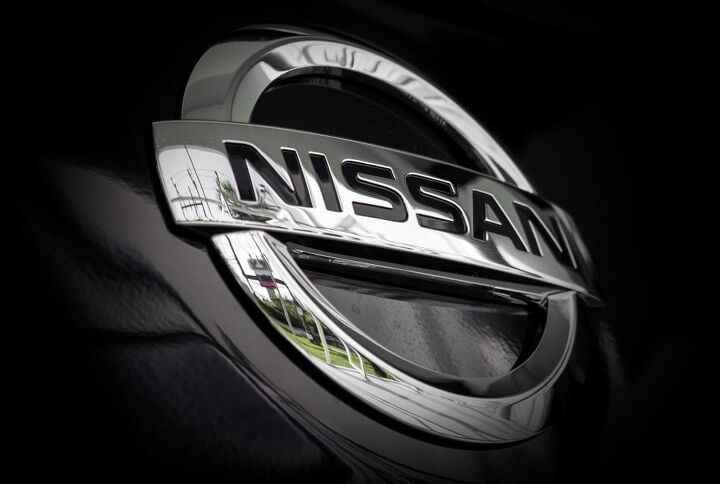


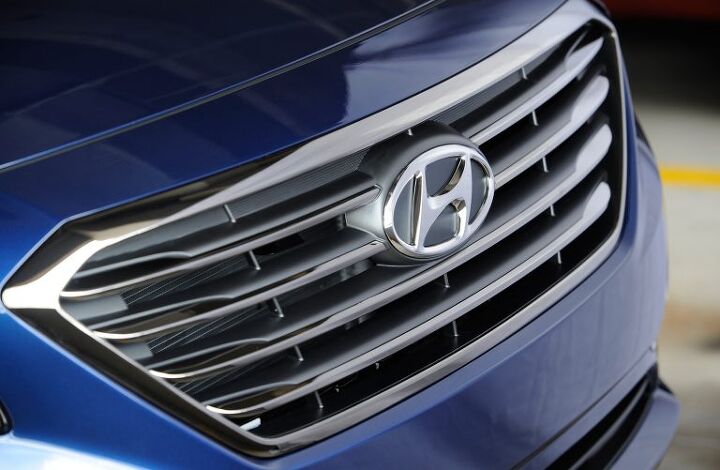
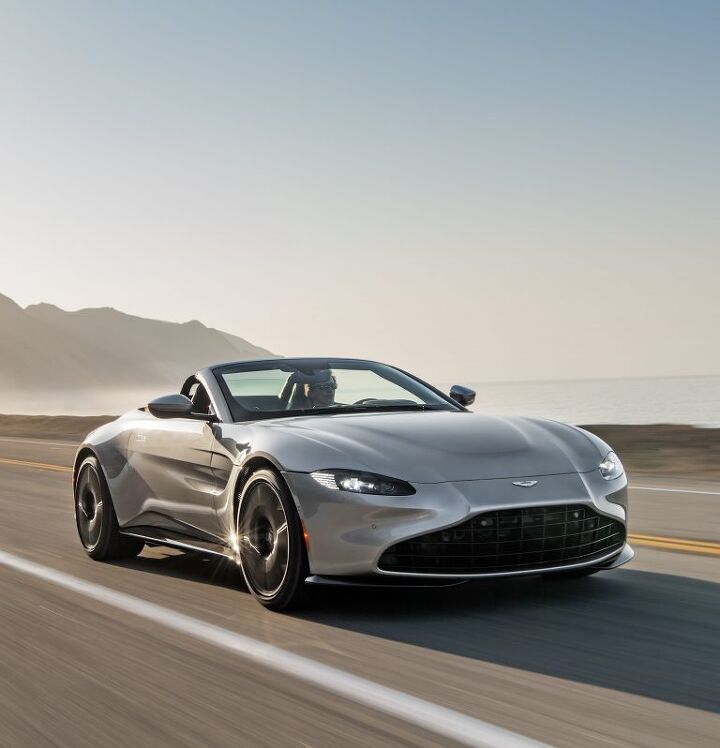


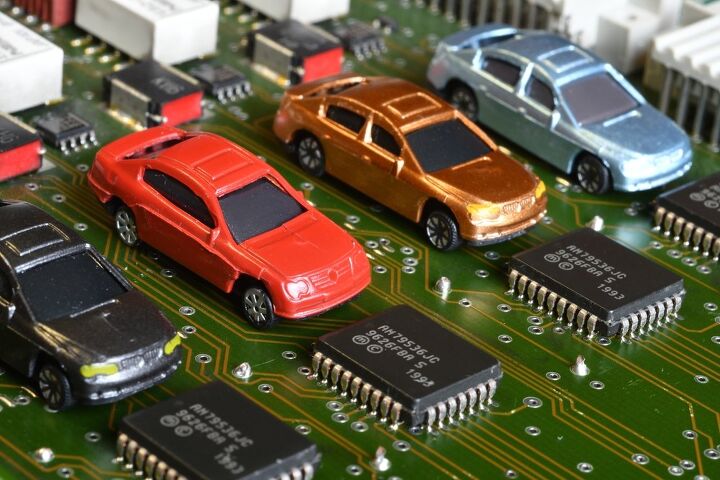


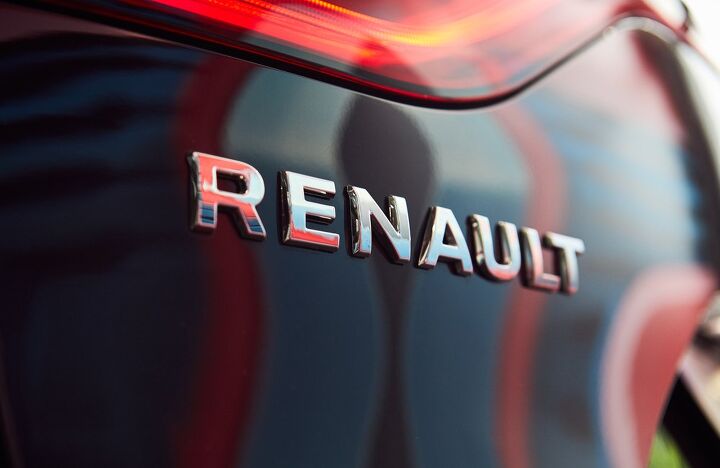
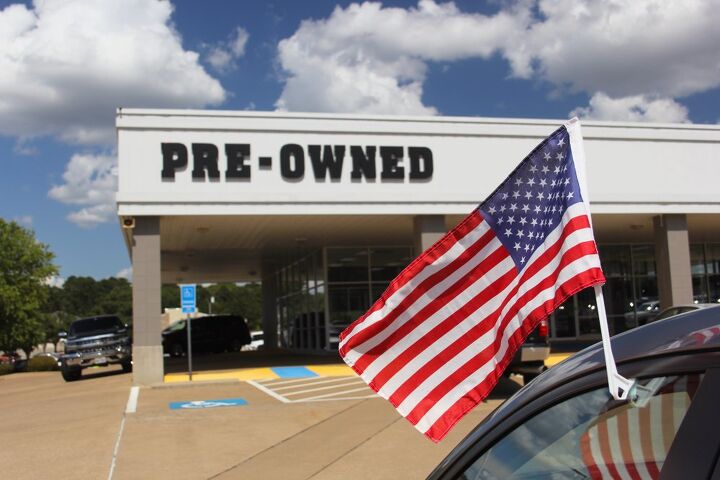
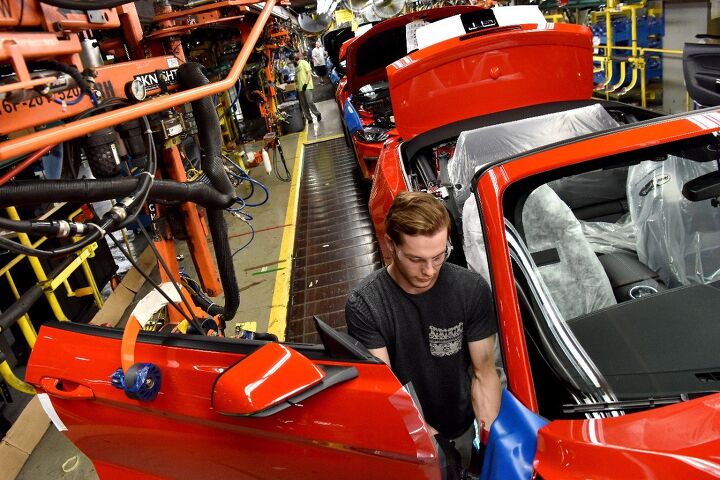











Recent Comments